MARKET UPDATE
- The S&P 500 total return index (which includes dividends in its calculation) originally plummeted 33.8% from its high on 02/19/2020 to its low on 03/23/2020.
- Congress passed historic stimulus via the CARES Act which provides $2.2 Trillion in aid to individuals and businesses.
- Since hitting the low, the S&P 500 total return index has gained 23.0% as of yesterday. However, it remains down 18.5% from its high.
- In the two weeks ending 04/03/2020, total seasonally adjusted initial unemployment insurance claims in the US were a staggering 13,473,000.*
- Unemployment claims are expected to significantly rise as news of company layoffs, furloughs, and pay reductions hit the news daily, particularly in the retail and hospitality space. For example, retail giant Macy’s recently announced the furlough of nearly its entire 130,000-person workforce.
MARKET COMMENTARY
The markets have recovered partly due to the hope that the landmark fiscal stimulus passed by Congress, paired with the massive amounts of liquidity that the Federal Reserve has injected into the market, will offset some of the economic decline. While the stimulus package is a good first step, there will likely be a need for an additional response from the federal government.
Interest rates remain low as the 10-year treasury rate continues to hover around 0.75%. Investment grade corporate and high yield debt have sold off substantially. We expect an increase in corporate bankruptcies in the high yield space due to low energy prices and decreased spending. This can lead to additional stress on both the equity and bond markets.
While it certainly has been encouraging to witness a strong rebound in the equity market from the lows of the period, we truly will not understand the economic impact of this crisis until we have some visibility on corporate earnings, most of which will be reported in a few weeks. Each day that a significant portion of our economy remains inactive can result in substantial declines in corporate profits for multiple quarters into the future. The federal response will continue to aid in mitigating the speed and severity of that loss but will not eliminate it completely.
We fully expect continued volatility in both the bond and equity markets which can, in turn, lead to inefficient pricing of assets.
Interest rates remain low as the 10-year treasury rate continues to hover around 0.75%. Investment grade corporate and high yield debt have sold off substantially. We expect an increase in corporate bankruptcies in the high yield space due to low energy prices and decreased spending. This can lead to additional stress on both the equity and bond markets.
While it certainly has been encouraging to witness a strong rebound in the equity market from the lows of the period, we truly will not understand the economic impact of this crisis until we have some visibility on corporate earnings, most of which will be reported in a few weeks. Each day that a significant portion of our economy remains inactive can result in substantial declines in corporate profits for multiple quarters into the future. The federal response will continue to aid in mitigating the speed and severity of that loss but will not eliminate it completely.
We fully expect continued volatility in both the bond and equity markets which can, in turn, lead to inefficient pricing of assets.
INVESTMENT OUTLOOK/CORE STRATEGY
Throughout history, we know that true wealth creation is borne from difficult times. Thus, we are utilizing a significant portion of our time and resources in both identifying and developing investment opportunities throughout this economic crisis. A summary of those opportunities within the equity, bond, and private placement markets is listed below:
PUBLIC EQUITY OPPORTUNITIES
- Companies with strong balance sheets where the expected impact of the pandemic will be temporary, resulting in no material impairment to the business. Examples include companies in the financial sector as they are fundamentally healthy but have sold off substantially.
- Companies that will benefit from the crisis and increase their market share in these uncertain times. Examples can include technology companies that are able to not only expand their business during the pandemic but also post-COVID.
- Companies in sectors that have sold off significantly, such as travel and oil & gas. Specifically, we are exploring companies that would lead their industry after the crisis. There can be significant value in buying the best companies in these highly affected sectors.
- Security selection will play a vital role in just how much we can leverage the downturn and, thus, you can expect exposure in very specific companies within the aforementioned industries.
BOND MARKET OPPORTUNITIES
- High yield bonds will be a source of higher returns with yields at attractive levels with potential opportunities around increased downgrades and/or distressed debt.
PRIVATE OPPORTUNITIES
- Rescue Financing, Infrastructure, and Real Estate Debt – As market volatility has recently increased, traditional sources of capital via mutual funds, banks, and hedge funds have discontinued purchases and/or have been forced to sell due to redemption requests. This has allowed private funds to step in and purchase assets at attractive discounts. Deal flow is expanding as our partner firms continue to call capital for new opportunities.
- Trojan Storage Fund 2020 – We are forging ahead with our private self-storage offerings via the Trojan Storage Fund of 2020, which will mostly consist of ground-up development projects. We are already seeing the price to build decrease from a level that already made economic sense. We believe that the current economic crisis will only provide greater opportunity for us to develop and acquire properties. We continue to expect self-storage to be a nearly recession-proof investment, especially in developed markets. Please expect an investor deck for the Fund in the coming weeks.
- Trojan Storage Direct Lending Fund – In an effort to capitalize on the current economic crisis, leverage our underwriting expertise in the storage industry, increase our deal flow, and provide a safe mechanism for our clients to generate an excellent intermediate return, we are launching our first Trojan Storage Direct Lending Fund. This fund will only lend on self-storage properties that Trojan would want to purchase at a specified price point. Since we only target those facilities that would be an attractive self-storage investment, default risk is mitigated. This new opportunity can serve as a replacement for a portion of your fixed income portfolio, while providing a better yield with the same or less risk as investment grade bonds. In addition, you would have the opportunity to invest in the equity portion of the acquired asset. Please expect an investor deck for the Fund by the end of May.

